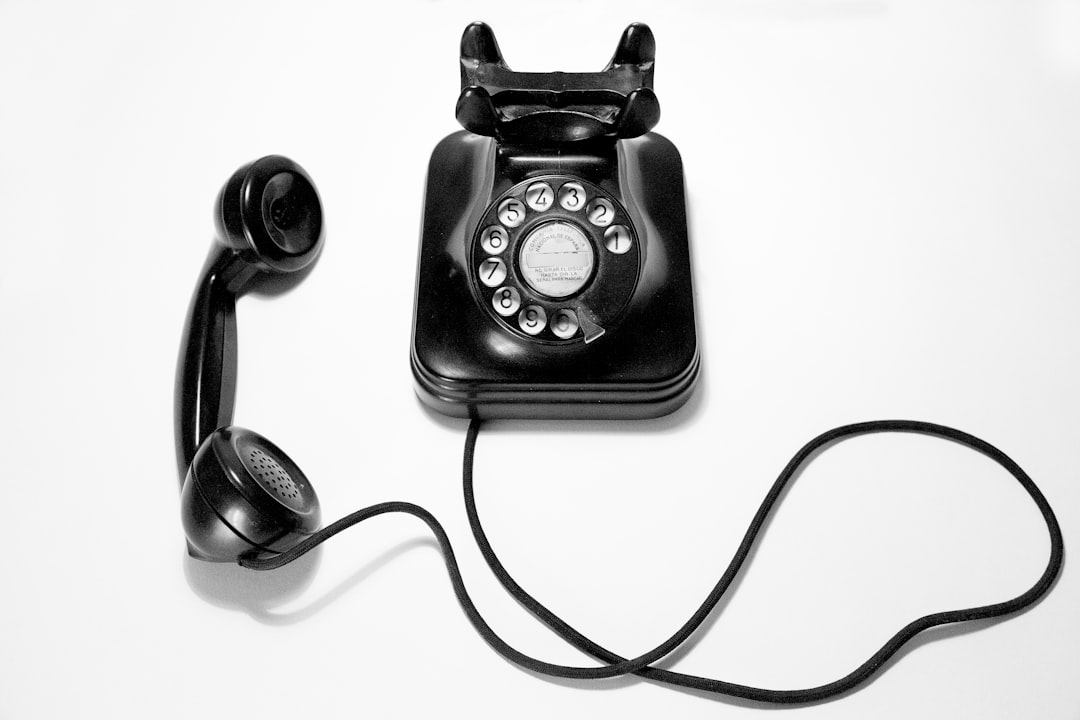In the early 2000s, Iowa introduced robust "Do Not Call" laws to protect residents from unwanted telemarketing and spam calls. These laws have evolved to include comprehensive statewide lists for landlines, cell phones, and email addresses, with updates to regulate automated and text messages. Iowans can leverage these laws with the help of specialized Do Not Call Lawyers and law firms focusing on Spam Call Law. The growing issue of intrusive spam calls has led to stronger regulations, prompting citizens to advocate for protection. Dedicated lists and legal assistance contribute to a quieter environment, especially in cities like Cedar Rapids, where residents can register on the National Do Not Call Registry and seek guidance from local law firms specializing in Do Not Call Laws Iowa.
“Unwanted telemarketing calls have been a persistent issue for Cedar Rapids residents over the years. This article delves into the history of ‘Do Not Call’ legislation in Iowa, highlighting its evolution and impact on local citizens. From early consumer protection efforts to the surge of spam calls, we explore key milestones that led to stricter laws. Understanding these developments is crucial for anyone seeking guidance from a Do Not Call Lawyer or Attorney in Iowa, especially with the ongoing challenges posed by nuisance calls. Learn about your rights and responsibilities under current Do Not Call Laws in Iowa.”
The Evolution of Do Not Call Lists in Iowa: A Historical Perspective

The concept of “do not call” lists in Iowa has evolved over time to better protect residents from unwanted telemarketing calls, or spam calls as they are commonly known today. What started as a simple mechanism to allow citizens to opt-out of marketing calls has transformed into a robust legal framework aimed at curtailing excessive and nuisance calls. The first significant steps towards regulating these calls were taken in the early 2000s when Iowa enacted its first do not call law, giving residents control over their phone lines. This initial effort was soon followed by advancements that allowed Iowans to register their numbers on comprehensive statewide lists, making it easier for legal do not call lawyers and attorneys specializing in these laws to represent affected individuals.
Over the years, as technology advanced, so did the methods of telemarketing. In response, Iowa’s do not call laws have been updated to include regulations targeting automated calls and text messages, ensuring that residents’ privacy is protected across all communication channels. Today, Iowans can register their landlines, cell phones, and even email addresses on the state’s official do not call lists, which serve as a bulwark against unsolicited sales calls. This proactive approach has encouraged compliance from telemarketers, making Cedar Rapids and other Iowa cities more peaceful for residents tired of unwanted interruptions. With the help of dedicated Do Not Call Attorneys in Iowa, citizens can now navigate this legal landscape to enforce their rights and reclaim control over their communication channels.
Early Telemarketing Regulations and Consumer Protection Efforts

In the early days of telecommunications, as telemarketing became a prevalent method of sales and customer outreach, consumer protection efforts emerged to address the increasing number of unwanted calls. The first significant regulations aimed at curbing excessive telemarketing practices began to take shape in the late 20th century. These early initiatives focused on providing consumers with tools to gain control over their phone lines, leading to the implementation of “Do Not Call” lists. Iowa, like many other states, played a crucial role in shaping these regulations, ensuring that residents had a say in managing their privacy and communication preferences.
The efforts to protect consumers from intrusive telemarketing practices led to the establishment of strict laws and the rise of reputable Do Not Call Lawyer Iowa and law firms specializing in spam call law. These professionals help Cedar Rapids residents register on the National Do Not Call Registry and offer guidance on navigating the complex web of Do Not Call Laws Iowa. With the constant evolution of communication technologies, these laws have adapted to include digital channels, ensuring that consumer rights are protected across various platforms.
The Rise of Spam Calls and the Need for Stricter Laws

In recent years, the influx of spam calls has become a significant nuisance for Cedar Rapids residents, leading to a growing demand for stricter Do Not Call laws in Iowa. With the proliferation of advanced technologies, telemarketers and scammers have found new ways to bombard consumers with unwanted and often deceptive calls, leaving many feeling invaded and frustrated. This rise in spam calls has prompted concerned citizens and advocacy groups to push for more robust legislation to protect their privacy and peace of mind.
The need for stringent Do Not Call Laws in Iowa is evident as these relentless spam calls not only disrupt daily life but also pose potential risks to personal information and financial security. Many residents find themselves on the receiving end of repeated calls from unknown sources, often promoting dubious products or services. This has prompted a rise in demand for legal assistance from Do Not Call Lawyers and Attorneys in Iowa who specialize in navigating these complex regulations. Such professionals play a crucial role in safeguarding the rights of Cedar Rapids residents and ensuring that their desire to be left alone is respected and protected by law.
Key Milestones in Do Not Call Legislation: Protecting Iowa Residents

Over the years, Iowa has seen significant developments in do-not-call legislation aimed at protecting its residents from unwanted telemarketing calls and spam. These laws have evolved to empower Iowans with control over their communication preferences. A pivotal moment occurred in 2003 when the state enacted the Do Not Call Act, allowing consumers to register their phone numbers for exclusion from unsolicited sales calls. This initiative was a game-changer, providing a legal framework that empowered residents and deterred nuisance calls.
Further advancements were made with the introduction of strict regulations targeting spam calls in 2010. A Do Not Call Lawyer or Attorney in Iowa could assist residents in navigating these laws and reporting violators. These measures not only clarified the rights of citizens but also led to the establishment of dedicated do-not-call lists and enhanced penalties for telemarketers who ignored consumer preferences, ensuring a quieter, more peaceful environment for Cedar Rapids residents and beyond.
Current Do Not Call Laws in Iowa: Rights and Responsibilities of Cedar Rapids Citizens

In Iowa, including Cedar Rapids, the Do Not Call laws are designed to protect residents from unwanted telemarketing calls and sales pitches. These regulations empower citizens to take control of their phone lines by preventing specific types of calls, especially those deemed as spam or unsolicited. According to the current laws, Iowa residents can register their phone numbers on the state’s Do Not Call list, effectively blocking most commercial calls within 30 days. This initiative is a significant step towards curtailing nuisance calls and giving locals more peace of mind.
Cedar Rapids citizens have the right to file complaints against companies or individuals who violate these laws. A Do Not Call Lawyer or Attorney in Iowa can guide residents through this process, ensuring their rights are respected. These legal professionals specialize in spam call law and can offer assistance if a Cedar Rapids resident receives calls in violation of the Do Not Call Laws. By understanding their responsibilities and seeking help from experts when needed, locals can actively participate in maintaining a quieter and more respectful communication environment.






